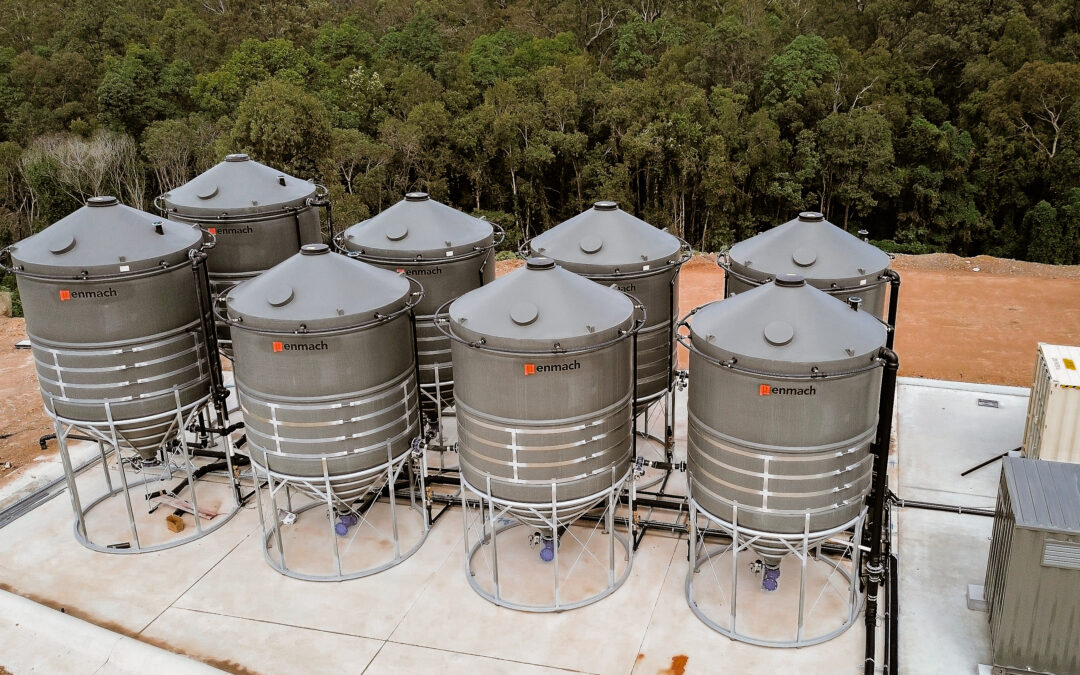In the agricultural world, water is the lifeblood that sustains crops, nurtures livestock, and ensures the productivity of farms. However, access to clean and reliable water isn’t always guaranteed, especially in regions facing water scarcity or contamination challenges. In this blog post, we’ll explore how water treatment tanks play a pivotal role in meeting the diverse needs of farming operations, from irrigation and livestock watering to crop processing and food safety.
Ensuring Water Quality for Crop Health
Water treatment tanks serve as the frontline defenders of crop health by purifying irrigation water and removing harmful contaminants. We’ll discuss how sedimentation, filtration, and disinfection processes within treatment tanks ensure that water delivered to crops is free from pollutants, sediments, and pathogens, promoting optimal growth and yield.
Irrigation Efficiency and Water Conservation
Efficient water use is essential for sustainable agriculture, particularly in arid regions where water resources are limited. Water treatment tanks enable farmers to recycle and reuse irrigation water, reducing the need for freshwater withdrawals and minimizing agricultural runoff. We’ll explore how advanced treatment technologies and storage systems maximise irrigation efficiency while conserving precious water resources.
Supporting Livestock Health and Welfare
Livestock farming relies on access to clean and safe water for drinking, bathing, and sanitation. Water treatment tanks play a critical role in ensuring the quality of water supplied to livestock, protecting animals from waterborne diseases and contaminants. We’ll examine how treatment tanks remove pathogens, chemicals, and sediment from water sources, safeguarding the health and welfare of farm animals.
Sustainable Solutions for Agricultural Runoff
Agricultural runoff, which carries sediment, nutrients, and pesticides from fields into water bodies, poses environmental risks to ecosystems and water quality. Water treatment tanks offer sustainable solutions for managing agricultural runoff, capturing and treating runoff water before it enters streams, rivers, and lakes.
Enhancing Food Safety and Quality
In today’s food industry, food safety and quality are paramount concerns for consumers and regulators alike. Water treatment tanks play a vital role in ensuring the safety and quality of agricultural products by providing clean water for washing, processing, and packaging. Treatment tanks remove contaminants and pathogens from water used in food production, reducing the risk of foodborne illness and enhancing product quality.
Adaptability to Diverse Farming Needs
One of the key strengths of water treatment tanks is their versatility and adaptability to diverse farming needs. Whether it’s a small-scale family farm or a large commercial operation, treatment tanks can be customized to meet specific water quality requirements, volume demands, and budget constraints. We’ll highlight examples of how Farms of all sizes and types can benefit from tailored water treatment solutions.
As the backbone of agriculture, water treatment tanks play a vital role in ensuring the sustainability, productivity, and resilience of farming operations worldwide. From safeguarding crop health to promoting livestock welfare and enhancing food safety, these essential components of agricultural infrastructure enable farmers to thrive in an increasingly complex and challenging environment. By embracing innovative water treatment solutions, farmers can continue to nourish the fields and feed the world while protecting precious water resources for future generations.
Follow us on Facebook and LinkedIn for the latest news and updates of products.

